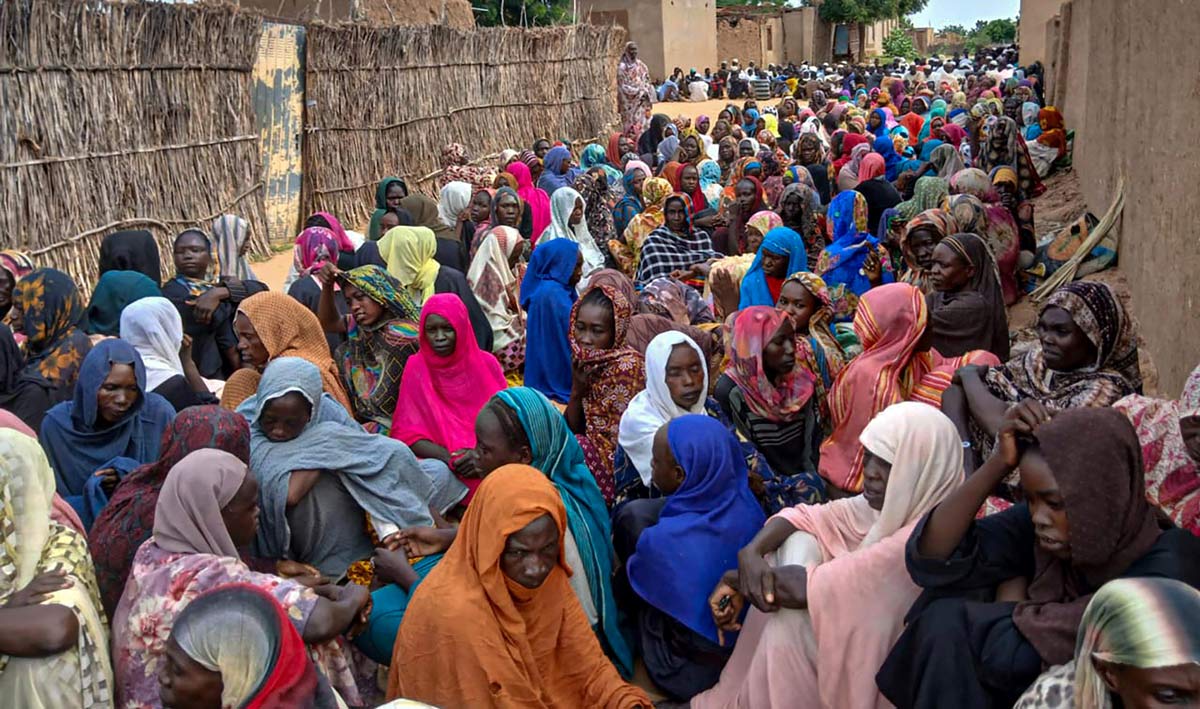by Jeffery Kazembe Batts
IG: @kazbatts
The people of Sudan continue to suffer through the world’s worst humanitarian crisis, according to the United Nations. The lack of food, shelter, and security is now ordinary. Yes, the systematic destruction in Gaza is catastrophic and genocidal! There is no doubt about what your eyes are seeing when watching daily on your cellphone, what is happening to the Palestinian people. Look at a world map.
You will strain to see the Gaza Strip, but you won’t miss Sudan, which is more than 5,000 times larger than the Gaza Strip! According to the online news platform The Conversation, 150,000 people have been killed, 14 million have been internally displaced, and 3 million have fled to neighboring countries in Sudan.
The Atlantic staff writer Anne Applebaum describes how, in the suburbs of Khartoum, unlike Rev. Jesse Jackson’s famous urging of “keep hope alive”, the sentiment among the masses is hopelessness. Believing “the future has been cut off.” She witnessed thousands sleeping outside under the open sun in 100-degree weather during her recent trip.
These people are former students, doctors, and farmers who are barely surviving, many with skeletal bodies, with no one paying attention. Not the US, the EU, the AU, China, or any other government is prioritizing saving the Sudanese people.
Recently, members of the Transitional Sovereignty Council (TSC) celebrated building a new runway at Khartoum International Airport. It is expected to reopen in October. TSC member Ibrahim Jaber proclaimed, “The budget is a war budget, but there are priorities. Which areas we can spend on providing services to citizens? This is most important.
The committee’s work focuses on preparing facilities, whether hospitals, electricity, water, or equipping the airport. When the war between the Rapid Support Forces and the Sudanese Armed Forces started on April 15, 2023, the RSF captured the airport and held it until earlier this year, in March, before being forced out.
Rebuilding the airport and retaking the capital city of Khartoum are significant accomplishments for the internationally recognized Sudan government, led by army general Abdel Fattah al-Burham.
They plan to bring in the humanitarian assistance needed for the people and also the military equipment required for the war. This may allow the government to return from Port Sudan on the Red Sea, where it was forced to retreat.
Meanwhile, on July 27, over 1,500 miles away in Nyla in the South of Darfur, Rapid Support Forces (RSF) leader General Mohamed Hamdan Dagalo, known as Hemedti, announced a parallel government.
With Sudan People’s Liberation Movement-North (SPLM-N) leader Abdel Aziz al-Hilu at his side as a top deputy and 27 months into the war, this announcement complicates the process of keeping Sudan from dividing into two states, similar too what happened in Libya after the overthrow of Muammar Gaddafi.
Based in the Blue Nile and South Kordofan areas since 2011, the SPLM-N is a militant political party opposed to the central government in Khartoum. This maneuver expands on Hamedti’s February announcement of the need for a secular “New Sudan”.
Burham and Hamedti are former allies who shared power after the overthrow of Omar al-Bashir in 2019. Collectively, they ousted the budding civilian government in October 2021 before falling out over the military structure.
Bashir had created an uncontrollable monster in Hamedti. Promoting him from being the leader of the Arab Janjaweed militia that terrorized the Zaghawa, Masalit, and Fur African ethnic communities to the leader of the RSF, which was separate from the regular army. The history and contemporary facts on the ground is very complicated with non-Sudanese actors involved! Generals are maneuvering.
The international community is ignoring. Genocide and catastrophic suffering are happening in many places on Earth. Arguably, by sheer numbers, nowhere is worse than Sudan now. What can we do here in America?


